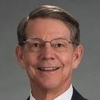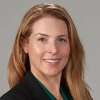Welcome to BARBRI, the trusted global leader in legal education. Continue to access the same expert-led Strafford CLE and CPE webinars you know and value. Plus, explore professional skills courses and more.
About the Course
Introduction
This webinar will address how federal courts have interpreted and applied the amendments to Federal Rule of Evidence 702, which was amended last year to clarify that (1) the burden is on the proponent of expert testimony to establish admissibility by a preponderance of the evidence standard, and (2) a reliable application of the principles and methods to the facts of the case is required.
Description
Effective Dec. 1, 2023, the trial judge must act as a true gatekeeper. Before allowing the jury to hear expert testimony, the court must find that "more likely than not" all the requirements in FRE 702(a)-(d) have been met.
The use of lay witnesses to provide expert testimony under Rule 701 will be discussed, including the "camouflaged" expert seeking to circumvent Rule 702 and the expert witness disclosures.
Preparation of expert witnesses will be discussed, including the preparation of reports and programming a witness' testimony under ABA Formal Opinion 508.
Listen as our panel addresses how federal courts have interpreted and applied the amendments to Federal Rule of Evidence 702.
Presented By

Mr. Cochran represents individuals and businesses in a wide variety of matters. He has tried jury trials, bench trials, administrative and regulatory hearings, and medical peer review hearings. He has appeared on many panels and spoken at seminars on a variety of topics, including the application of the Daubert rule and a host of topics related to white-collar criminal law and investigations.

Ms. Steinberg is a litigator with 15 years of experience handling high-profile white collar and violent crime matters for the U.S. Department of Justice (DOJ). Prior to joining Ballard Spahr, she served as a U.S. Attorney and in the senior leadership at DOJ in Washington.
-
This 90-minute webinar is eligible in most states for 1.5 CLE credits.
-
Live Online
On Demand
Date + Time
- event
Thursday, September 25, 2025
- schedule
1:00 p.m. ET./10:00 a.m. PT
I. Historical perspective on expert testimony
II. 2023 Amendments
III. Scientific witnesses: assessing "reliable application of a principle or method"
IV. Non-scientific expert witnesses: pre- and post-amendment
V. Lay opinion witnesses: FRE 701 vs. FRE 702
VI. Stealth/camouflaged expert testimony
VII. Preparing expert witnesses for testimony
The panel will discuss these and other important issues:
- What is required to show it is more likely than not that expert's opinion reflects a reliable application of the principles and methods to the facts of the case?
- What issues arise when experts are offering emerging theories, e.g., query whether a technique or theory has been generally accepted in the scientific community or is emerging?
- Can historically accepted evidence be challenged and excluded under the new standards, e.g., must all experts meet the Rule 702 threshold?
- Are counsel tendering experts obligated to caution them about where their methodology and "expertise" ends in order to prevent ipse dixit and avoid an unreliable application of the principles and methods to the facts of the case?
Unlimited access to premium CLE courses:
- Annual access
- Available live and on-demand
- Best for attorneys and legal professionals
Unlimited access to premium CPE courses.:
- Annual access
- Available live and on-demand
- Best for CPAs and tax professionals
Unlimited access to premium CLE, CPE, Professional Skills and Practice-Ready courses.:
- Annual access
- Available live and on-demand
- Best for legal, accounting, and tax professionals
Unlimited access to Professional Skills and Practice-Ready courses:
- Annual access
- Available on-demand
- Best for new attorneys
Related Courses
Recommended Resources

Explore the Advantages of Consistent Legal Language
- Learning & Development
- Business & Professional Skills
- Talent Development



